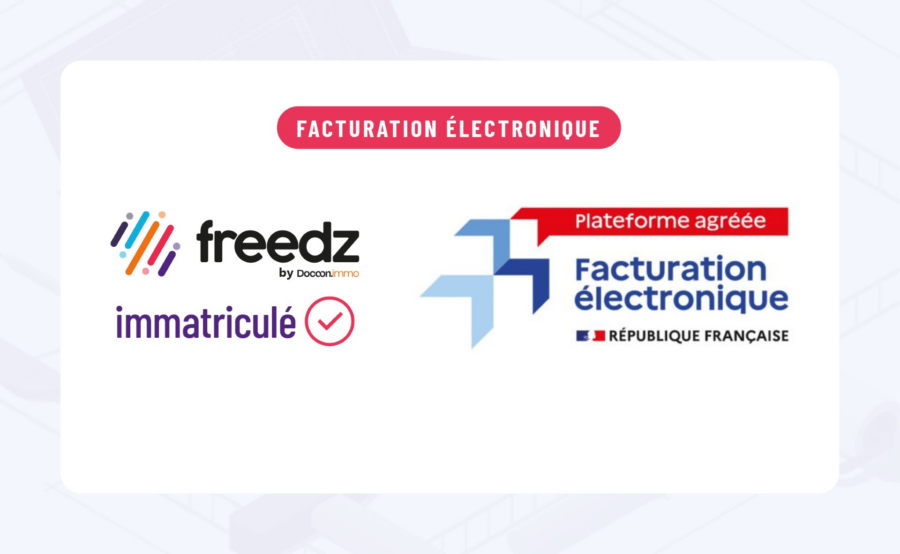
CFO's eye #1 - Laurent Michelet, CFO at Matera
Laurent Michelet is CFO at Matera, the French start-up that allows co-owners to take back control of their co-ownership and manage it autonomously, without having to go through a syndic.
We met him as Matera has just raised €35m to accelerate its growth. The role of the CFO in a startup, the importance of fundraising in a context of hyper-growth, corporate culture... We discussed all the subjects that are at the heart of the ecosystem and that make the success (or failure) of startups.
Before we get to the heart of the matter, can you tell us about your professional background? Have you always worked in finance?
When I graduated from HEC, I wanted to do M&A. Consulting is a very good way to see different business situations in different sectors. It also allows you to acquire excellent financial technical skills in a demanding environment.
After a few years, I wanted to get involved in more concrete things and to take on new challenges. So I took on a more entrepreneurial role, as "Country Manager", to launch the French subsidiary of a Belgian start-up. It was a great experience, very operational, in a company that was not financed, so with few resources. You had to manage everything at once and take shortcuts, which was very different from consulting.
After this experience, I returned to corporate finance. I spent 4 years at Deezer where I was in charge of M&A and strategy, fundraising and investor relations, and strategic partnerships.
Finally, before coming to Matera, I was CFO/COO at Soundcharts. This is a market intelligence platform for music professionals, which had raised €3M. I managed finance, HR and sales.
I see that you have been through several start-ups, Deezer, Soundcharts and Matera. What is the role of the CFO for you today and particularly in this type of structure?
Historically, the CFO was imagined as the person who built the financial reporting. And this was true of the 'old-style' CFO, with a very accounting profile.
Today, the role has really evolved, it's broader and broader. I would say that the mission is to ensure the proper allocation of resources (recruitment, marketing investments, choice of strategic projects such as the launch of new countries or new offers). Above all, you have to ensure operational efficiency.
Accounting and reporting have become inputs rather than outputs... Today, the construction of data has less value, with all the SaaS tools that exist, and so we are more in the business of analysing the data to get the most value out of it. The aim is to ensure that growth is healthy and that investments are made in the right place.
Because, even if it's a bit controversial to say it like that, the objective in start-ups today is to maximise the value. That's what's going to give you more resources in the end.
In the end, everyone wins. Customers are better served, with new products and better service. And the employees win too. At Matera, all employees are shareholders, with a BSPCE system. So they also gain from the growth of the company and this is one of the values we defend.
The only problem with this is that valuing start-ups solely on the basis of turnover growth, as is the case today, can lead to shortcuts in terms of human resources: too many recruitments, pressurisation of teams, turnover, etc. We must therefore be careful.
In this respect, I think that investors have a really important role to play in societal terms. Obviously, we need growth. But we mustn't forget the human issues, which should be part of the investment criteria and which are nowadays put aside. In start-ups, it can also be one of the roles of the CFO to get these messages across.
Precisely, you recently announced a very nice fundraising, 35 M€, can you tell me a little more about it? For what purpose?
As I said before, the first objective is to offer a better service to our customers. And obviously to make our service known and to accelerate growth. We are also going to launch in Germany.
What is the role of the CFO in this type of case?
I would say that, in the context of a fund-raising, the CEO tells a story, he will talk about the creation of the company, the team, the market... For his part, the CFO is a co-pilot, he accompanies and puts the figures opposite his story. He will prepare the business plan and calculate the interesting KPIs. Investors will very quickly want to know the figures, how much you need to spend for what kind of growth. You have to be able to show that you are an interesting "financial asset" and that from 1 euro invested, you can bring in 100.
We hear a lot of these questions at the moment, about the importance of raising funds for a start-up. In fact, there is a debate that is starting to open up on the subject. I'm thinking, for example, of Lemlist, which recently publicly refused to raise €30m to claim a different model of success. What is your point of view on this issue?
Indeed, in certain specific sectors, you can achieve hyper-growth without raising funds. But this is very limited, these are marginal cases.
One example is Vente Privée. It's pretty crazy what they did, but I don't know if it would be possible today. With easier access to investors, they would have maybe 3-4 competitors who would raise €50m very quickly and they would need to raise money to stay in the race. I think today, with the competitive intensity and the money available in the market, you need resources if you want to take the market quickly.
You wrote an interesting article about the corporate culture at Matera, in which you talk about a value that is transparency. What does transparency mean for the CFO?
I think that today's employees are more and more interested in information and have a financial culture. So there is now a very strong issue of communication and transparency. I'm thinking in particular of BSPCEs and fundraising.
It's also interesting in terms of management. When you explain the objectives, the teams understand the purpose of the decisions and everyone is aligned. If a team has to be reorganised or recruited for a particular need, people understand the constraints and the reasons behind the decisions.
So you create a culture of adaptation which is super important in start-ups. So the challenge for finance is to provide all this context so that people understand the decision-making and take ownership of the strategy and the direction we are taking.
Other articles you may be interested in:

Freedz, la plateforme des acteurs de l’immobilier & du bâtiment définitivement immatriculée par la DGFiP

Quelles priorités et enjeux pour les DAF en 2026 ?

Axess renforce son positionnement et l’accompagnement de ses clients immobiliers en devenant partenaire privilégié de Docoon.immo
Our most popular free resources:

White paper: the essentials for a successful digital transformation of your accounts payable
This white paper provides answers to the main questions you may have when making the transition to electronic invoicing, as well as the points to watch out for in order to successfully complete your project.

The Guide to 2024: everything you need to know about the widespread use of electronic invoicing
This guide contains all the information you need to understand the new legislation and to anticipate this change.

Case Study: Improve Accounts Payable Efficiency While Maintaining Control
In order to improve its supplier relations and enhance the value of its employees' missions within the accounting department, Halpades has chosen to completely dematerialise its supplier invoices thanks to Freedz.